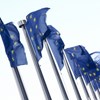euron
A monster in the making. On the euro crisis and democracy
What started off as a political project aimed at strengthening democracies has become an economic project in crisis that undermines democracy. That is how economist Matthias Matthijs describes the Eur

A monster in the making. Interview with Matthias Matthijs on the euro crisis and democracy
What started off as a political project aimed at strengthening democracies has become an economic project in crisis that undermines democracy. We are of course talking about the european union and the
Matthias Matthijs: Integration at What Price? The Erosion of National Democracy in the Euro Periphery
Matthias Matthijs, Assistant Professor of International Political Economy at SAIS in Washington, DC ABSTRACTThe advent of the euro crisis brought back a gap between North and South in Europe not just i
Accelerating the Evolution of Nonhuman Primate Neuroimaging
The PRIMatE Data Exchange (PRIME-DE) Global Collaboration Workshop and Consortium 2020. Accelerating the evolution of nonhuman primate neuroimaging, Neuron, 105:600-P603.Nonhuman primate neuroimaging
Competition: Your vision of a positive future
The Paris Institute for Advanced Study and the 2100 Fondation in partnership with the Institute for Futures Studiesare launching the first Positive Future competition in order to encourage the elaboration
Institute for Futures Studies is now coordinator for the FuturICT Nordic Hub
The Institute for Futures Studies has become the coordinator for the FuturICT Nordic Hub. The FuturICT Nordic Hub represents Finland, Sweden, Norway, Denmark, Estonia, Latvia and Lithuania, and is a p
Matthias Matthijs: CANCELLED
Matthias Matthijs, Assistant Professor of International Political Economy at SAIS in Washington, DC Dis-Embedded Markets and Embedded Politics. The Erosion of National Democracy in the Euro Periphery Th
A community of shared values? Dimensions and dynamics of cultural integration in the European Union
Journal of European Integration Abstract The series of recent crises (EURO, refugees, backsliding, Brexit) challenge the self-portrayal of the European Union (EU) as a community of shared values. Agains
Richard Bellamy: Taking Back Control: Why National Democracy Needs the EU, and the EU Needs National Democracy
Richard Bellamy, Professor of Political Science, UCL and Director of the Max Weber Programme, EUI. Visiting Professor at the University of Exeter. Abstract The muted popular support for, and certain faiI dispute this analysis. I argue that the EU’s role consists of supporting the democratic institutions of the member states, not least by enabling them to regulate their mutual interactions in non-dominating ways. From this perspective, the standard solution to the EU’s democratic deficit would create a domestic democratic deficit within each of the member states, one I contend democracy at the EU level would be unable to compensate for. Indeed, the current rise in Euro scepticism can be regarded as a product of this situation. By contrast, I suggest we conceive the EU as an association of democratic states, the decisions of which are under their joint and equal control. Drawing on the book, the talk will cover why such an arrangement is necessary, the norms that govern it, and the institutional framework required for it to work effectively and efficiently as well as equitably.
Jason Beckfield: Unequal Europe: Regional Integration and the Rise of European Inequality
Jason Beckfield, Professor of Sociology at Harvard University. Abstract The Euro-crisis of 2009–2012 and the UK’s 2016 vote to leave the EU vividly demonstrated that EU policies matter for the distribut








